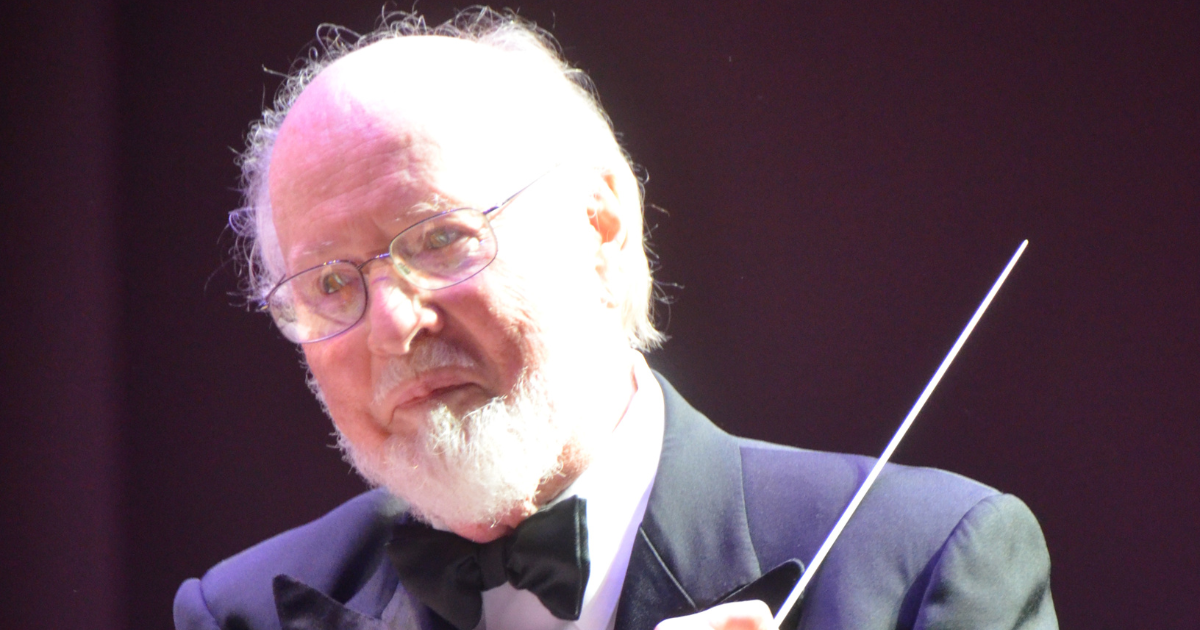John Williams: music woven from eternity
"So much of what we do is ephemeral and quickly forgotten, even by ourselves, so it's gratifying to have something you have done linger in people's memories".

Do you hear it? This is not just music. It is the breath of an entire universe, encoded in the sound of an orchestra. The interplay of brass, the sweep of strings, the deep resonance of timpani rolling through space. The name John Williams may not immediately come to mind, but the moment his melodies begin to play, everything falls into place.
At first glance, his name might not seem particularly significant – just another musician, composer, or creative figure. But John Williams is more than that. He is a visionary who has left an indelible mark on global pop culture. Few possess the ability to capture a moment, to sense the emotional undertone of a scene, and translate it into music that enhances every nuance of human feeling.
John Williams didn’t just compose music – he built entire worlds. He gave depth to the film and infused cinema with an invisible yet undeniable pulse.
The first note
February 8, 1932 – New York City. A boy was born into a home where music was not just heard but lived. John Towner Williams grew up surrounded by the jazz improvisations of his father, a professional drummer. He absorbed rhythms, watched how fingers danced across piano keys, and understood from an early age that music was more than just notes, it was life woven into sound. From childhood, John was acutely aware of how melodies are born, how instruments converse with one another, and how a single note can shift an entire mood. This world of jazz, improvisation, and pure sound laid the foundation for his future.
At 16, his family moved to Los Angeles – a city of dreams, cinema, and fate. John enrolled at North Hollywood High School before studying composition at the University of California under Mario Castelnuovo-Tedesco, who taught him to see music as architecture. He continued his education at the Juilliard School in New York, refining his skills as a pianist while moonlighting in jazz clubs, crafting the improvisational touches that would later define his legendary scores.
Two notes that changed everything
Williams' early career in film began behind the scenes – orchestrating and performing piano parts for major Hollywood studio productions. He worked under Henry Mancini, contributing to film scores without yet knowing that one day, his name would be as legendary as the directors he composed for.
Работа в кино началась для Уильямса с аранжировок и исполнения партий на пианино в оркестрах, записывающих саундтреки для крупных студий. Молодой пианист зарабатывал на жизнь, играя в составах Генри Манчини и записывая партии для киномузыки. Тогда он еще не знал, что однажды его имя станет таким же знаковым, как имена режиссеров, для которых он будет писать.
Then came a pivotal encounter: Steven Spielberg. Their first collaboration, The Sugarland Express (1974), laid the groundwork, but it was Jaws (1975) that changed everything. Two notes. Just two. Repeating. Building. Swelling into a crescendo of dread. This simple yet genius theme became an instant classic. With Jaws, John Williams was no longer just a composer, he was an architect of emotion.
Then came Star Wars. The fanfare that encapsulated an entire galaxy. Majestic, triumphant, instantly iconic. Williams employed leitmotifs, drawing inspiration from Wagner, ensuring that each theme embodied a character, an idea, or a movement. His music didn’t just accompany the visuals – it defined them.
There is music that lingers in the background, and then there is music that creates worlds. Williams’ Harry Potter score (Hedwig’s Theme, 2001) is more than just a composition, it is a portal to childhood. The delicate, bell-like tones of the celesta, reminiscent of the first snowfall of winter, conjure an instant sense of magic and wonder. Not coincidentally, Tchaikovsky used the same instrument in The Nutcracker – music of dreams, innocence, and enchantment.
Williams' Jurassic Park (1993) theme evokes something entirely different—majestic strings, a regal rhythm, and echoes of a prehistoric past. His music becomes a bridge between science and myth, wonder and fear, life and extinction.
ссылка:
A legacy that echoes through time
Five Academy Awards, twenty-five Grammy Awards, and countless honors. But his greatest achievement isn’t measured in trophies, it’s in the emotions he has given to the world. Williams has captured in music the wonder of childhood, the longing for the unknown, the tension of anticipation, and the triumph of victory.
Williams doesn’t just compose music – he paints with sound. His symphonies hold whispers and tempests, light and darkness, childhood and eternity.
They say great works of art outlive their creators. The soundtracks of John Williams are already timeless. They resonate in our memories, awaken emotions, and shape our cinematic experiences. And as long as cinema and music exist, so too will his legacy. It will breathe. It will endure. It will forever play on.


